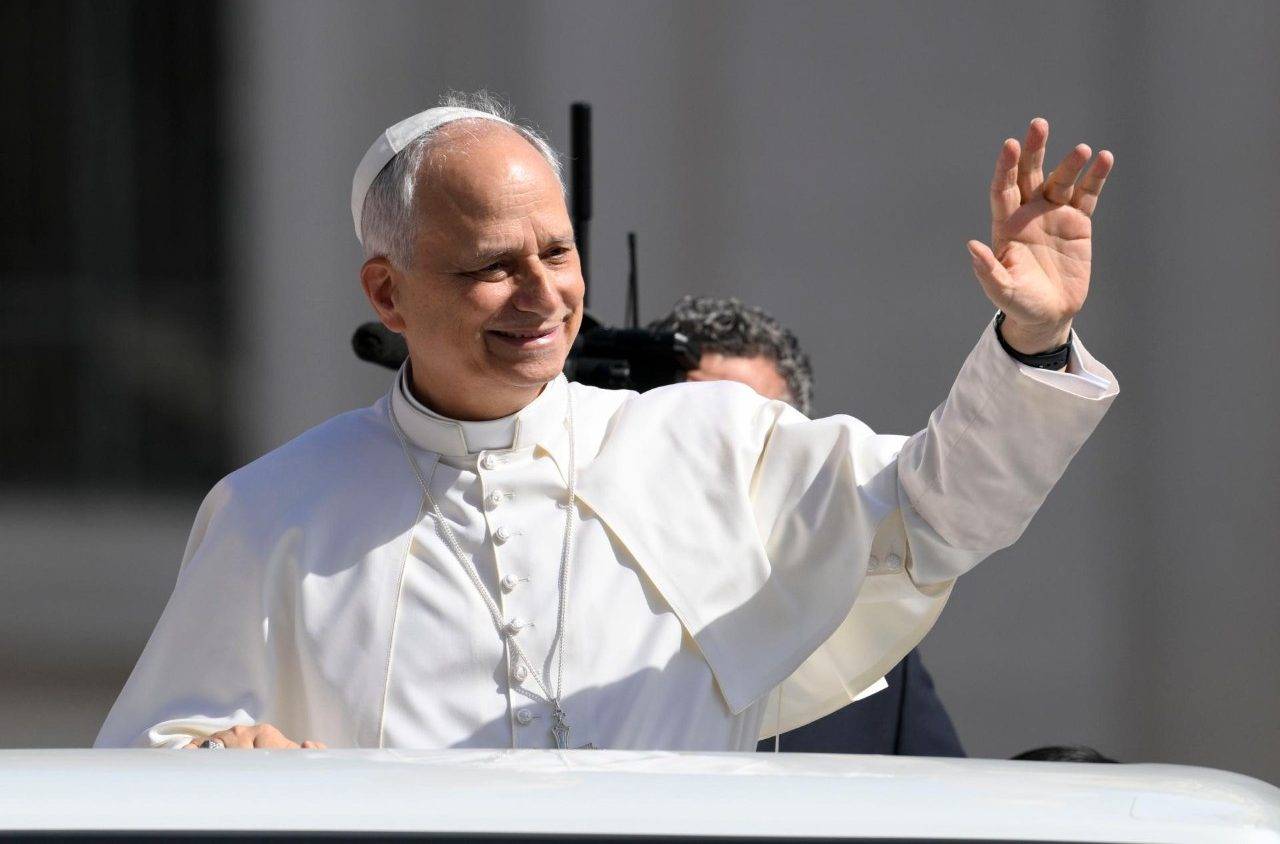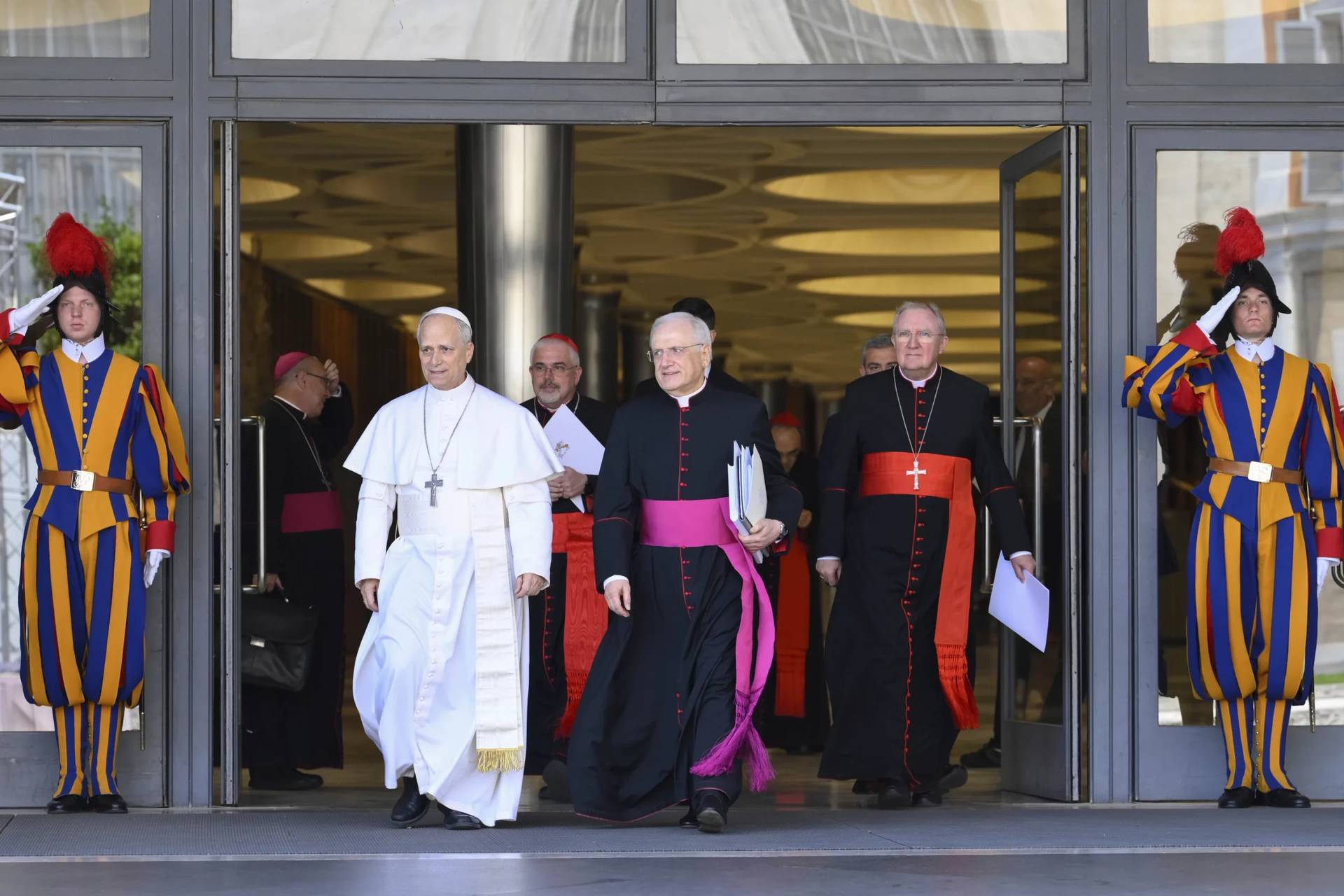ROME – Just 48 hours ago, Pope Francis met U.S. President Donald Trump. On Friday, the diplomatically dynamic pontiff received two more heads of state, Presidents Rumen Radev of Bulgaria and Gjorge Ivanov of Macedonia.
It remains to be seen whether transcending his differences with Trump or promoting peace in the Balkans, one of the world’s most notoriously conflictual pieces of real estate, ends up being the bigger trick for Francis to pull off.
The contrast between the two days in the Vatican was jarring.
On Wednesday, the eyes of the world were on the summit between the pope and the U.S. president, with intense media scrutiny surrounding every word and gesture. When Radev and Ivanov came calling, on the other hand, the climate in Rome was akin to that old philosophical head-scratcher: “If a tree falls in a forest and no one is there to hear it, does it make a sound?”
Despite that, the choreography of the encounters was remarkably similar. Francis gave both Balkan presidents large bronze medallions and copies of four of his documents – Evangelii Gaudium, Amoris Laetitia, Laudato Si’, and his 2017 message for the World Day of Peace – exactly as he did with Trump.
Yet Francis is legendarily a pope of the peripheries, and it’s entirely possible that to him, meeting the heads of state of two Balkan nations with a combined population barely over ten million may have been more important than his first-ever encounter with the new U.S. Commander-in-Chief.
(In truth, none of those engagements likely were the pope’s favorite appointment of the week. That pride of place probably went instead to a Friday audience with the Little Missionary Sisters of Charity, part of the family of religious men and women founded by Italian Father Luigi Orione in the late 19th century to meet the needs of the working poor.)
Granted, Pope Francis didn’t initiate any of these meetings, but rather responded to requests that heads of state made. Still, his turn to the Balkans on Friday has several levels of interest.
First, Francis is aware that the Vatican has a checkered history in the region. The late French President Francois Mitterand blamed the Vatican for triggering war in the Balkans in the early 1990s by prematurely recognizing the independence of Croatia and Slovenia, two predominantly Catholic states, from the former Yugoslavia.
In that sense, Francis, who sees himself as a “peace pope,” probably relished the opportunity on Friday to try to act as an agent of unity rather than division.
Beyond that, there are three other reasons why this pope has the Balkans on his mind.
First, like his predecessors St. John Paul II and Emeritus Pope Benedict XVI, Francis regards the press for Christian unity as a priority, with a “preferential option” for the Orthodox as a cornerstone of that effort. The split between East and West was the primordial Christian schism, and every recent pope has seen overcoming that divide as the key to ecumenical progress.
Bulgaria is a largely Orthodox nation, with a church that became autocephalous, meaning independent, in the year 927. Relations between the Orthodox majority and the tiny Catholic minority are generally strong. After the Communist takeover following World War II, the Bulgarian Orthodox patriarch prevented the forcible incorporation of Eastern-rite Catholics into the Orthodox church, as happened in other Soviet satellite states.
Bulgaria also has a grand Christian tradition, including the Holy Monastery of Rila, which John Paul II visited during his 2002 trip to the nation.
“The bishop of Rome,” John Paul said on that occasion, “is here today to tell you that the Latin church and the religious [men and women] of the West are grateful for your life and witness!”
In Macedonia, 65 percent of the population is Orthodox, including Ivanov and his wife Maja Ivanova. They’re regular church-goers, who surround themselves with religiously serious people. (That was clear on Friday when Ivanov’s interpreter, a young Macedonian woman wearing all-black and the mantilla, or head covering, that’s traditional for women in papal audiences, greeted Francis by loudly proclaiming Sia lodato Gesù Cristo … “May Jesus Christ be praised!”)
As a result, both Bulgaria and Macedonia have a significance for the pope that goes beyond geopolitics.
Second, there’s a very personal bond uniting recent popes with both nations.
In the case of Bulgaria, it’s the so-called “Bulgarian connection,” meaning the lingering suspicion that Communist agents in Bulgaria were involved in the assassination plot against St. John Paul II in 1981, at the behest of the KGB in Russia. Three Bulgarians were actually charged by Italian investigators into the plot, but eventually acquitted.
When John Paul visited Bulgaria in 2002, he disowned that theory, saying, “I never believed in the so-called Bulgarian connection, because of my esteem and respect for the Bulgarian people.”
That was amazingly important for locals, who always saw those rumors as a stain on the national reputation. The Bulgarian Foreign Minister at the time, Solomon Passy, called the absolution “Bulgaria’s greatest foreign policy accomplishment since World War II.”
Francis perhaps wanted to make clear that the rehabilitation of Bulgaria wasn’t just a personal gesture of John Paul, but a corporate stance of the Vatican.
With Macedonia, of course, there’s the fact that Mother Teresa, now St. Teresa of Kolkata, was born in Skopje, the national capital. She’s in effect the most famous Macedonian of all time, despite the fact that she left the country at the age of 18 to go to Ireland and then spent most of her life in India. (There’s now a memorial house dedicated to the memory of Mother Teresa on the same street in Skopje where she was baptized.)
Francis canonized Mother Teresa as one of the highlights of his special jubilee Holy Year of Mercy, so the chance to welcome the head of state of the country in which she was born had clear significance.
Finally, there’s also a diplomatic and geopolitical concern which Francis shares with Bulgaria and Macedonia, and that’s Russia.
Broadly speaking, both Radev and Ivanov are perceived as “pro-Moscow,” in the sense of favoring good working relations with the Kremlin and Russian President Vladimir Putin. Radev was elected last November in part because of the perception that he’s aligned with Russia, while Ivanov was in Moscow shortly before his meeting with the pope to receive the “Patriarch Alexy II Award,” a prize awarded by the International Public Foundation for the Unity of Orthodox Christian Nations.
Francis too believes in engagement rather than isolation of Russia, in part for diplomatic reasons and in part due to his commitment to strengthening ecumenical ties with the Russian Orthodox Church. The three leaders, therefore, had the chance to discuss their common interests in keeping lines of communication with Putin and the Kremlin open.
Granted, none of that adds up to the theater of an encounter between “the Donald” and the pontiff. For the pope of the peripheries, however, it probably had at least as much substance.













